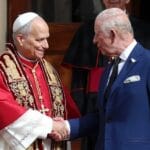New Year’s resolutions for the Church of England…?
Sarah Mullally, current bishop of London and Archbishop of Canterbury elect, gave a new year’s address yesterday in which she set out some priorities for the Church of England. (It was quite widely reported, in The Times, BBC, LBC and elsewhere, though I could not find the text anywhere on her own website or that … Continue Reading



































